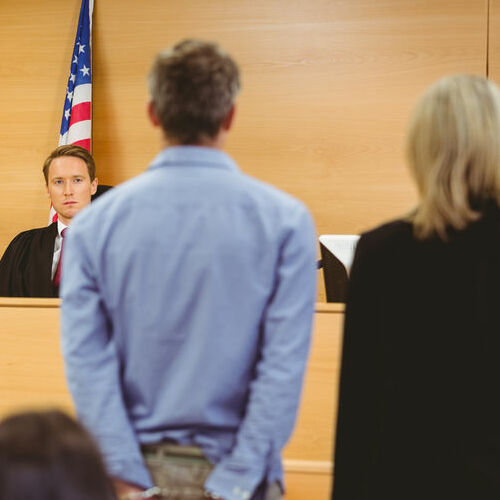
In Indiana as in other states, there are bail bonds, including Federal bonds. Which type of bond is needed depends on the factors of the arrest and other facts about the defendant. There are two types of federal bonds:
- One type of federal bonds can be issued as a Signature Bond which is an unsecured bonds that is secured by a third party’s signature.
- Another type of federal bonds are secured by property, usually real estate. The second type of bond can be secured by other property like expensive art, jewelry, or vehicles.
When are federal bonds required?
The average person is more familiar with local and state bail bonds. These are bonds that are granted for misdemeanor crimes such as:
- Class A Misdemeanors: The are crimes such as possession of 30 grams of marijuana. If over 30 grams, this crime can be upgraded to a federal charge requiring federal bonds.
- Class B Misdemeanors: These are not the most serious of crimes, but they are still crimes that can be punished by a maximum of 180 days in jail and a maximum fine of $1,000. One example is public intoxication.
- Class C Misdemeanors: These are the least serious of crimes and are punished by up to a minimum of sixty days of jail time and a maximum of a $500 fine. An example of this type of crime is a first-time DWI arrest with no other arrests.
Crimes that require federal bonds are more severe can include any of the following or the arraigning judge can deem any misdemeanor to a federal charge and whether posting federal bonds will be permitted.
- Arson
- Grand Theft
- Kidnapping
- Murder.
- Rape.
- Selling illegal drugs.
There are details of the arrest and surrounding circumstances that can have an impact if the judge allows or denies posting federal bonds just as with misdemeanor-level bonds.
What are the rules on federal bonds in Indiana?
A licensed bond agent is required to collect 10% of the amount of federal bonds as set by the judge. There are restrictions set by the judge for a person being released on federal bonds. Those restrictions include those that make federal bonds a conditional bail bond. This is typical when the defendant is considered to be a flight risk.
The restrictions can include the defendant who is prohibited from traveling outside the jurisdiction and associating with known criminals or others on parole or probation. They are restricted from consuming alcohol and drug use and are usually required to check in with the federal bonds agent every week.
If any of these restrictions are committed, or the defendant fails to appear for all court dates, they can be arrested and returned to jail. At this point, they will have a new court date set for the original crime and the bail-jumping crime.
Is the money for federal bonds returned?
Bail bonds are refundable by the court when paid in full to the court, after the hearing. Any fees will be deducted before the court returns the bail amount. When federal bonds are issued by a bond agent, only the 10% fee paid in addition to the bond amount is paid to the person who acquired the federal bonds.
How much are Level 5 federal bonds in Indiana?
The possible bond amount for Level 4 federal bonds bail is set at $10,000.00. For level 5 and 6 federal bonds, the possible bond amount to bail a defendant is $5,000.00. For any federal bonds to be allowed is at the judge’s discretion based on factors the judge will consider.
Those considerations include the defendant’s criminal history, standing in the community, employment status, and living conditions. If the defendant or someone representing the defendant will be required to post a cash deposit of a minimum of 10%. The deposit amount is determined by the bail bond agent who will use the same factors in consideration as well as running a credit report on the defendant and/or the person representing the defendant.
At The Day’s End
Being arrested and posting federal bail bonds is just the start of things that will have an impact on the defendant and their family’s lives. This can have financial repercussions for days, weeks, months, or even years, especially if the defendant is incarcerated for any period or is unable to maintain employment.
The best thing a person arrested on federal charges can do is to hire a defense attorney who has federal trial experience. They will know the legal system and can help the defendant and their family navigate the legal system, including having the charges reduced and getting a lighter sentencing. This can all help with the future life of the defendant and their family members, even possibly keeping their current employment or acquiring new employment.
